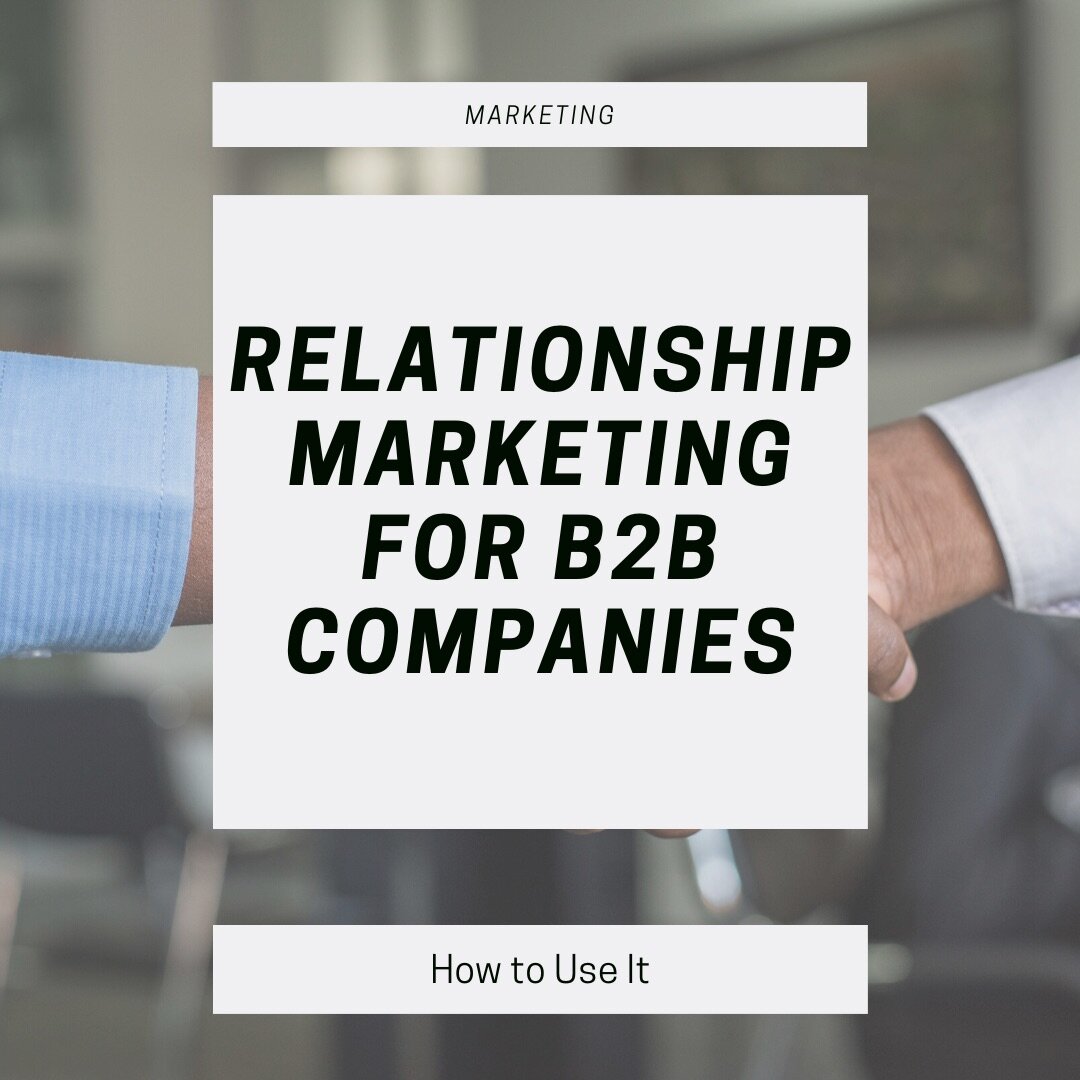Relationship Marketing for B2B Companies
A common goal for most businesses, especially in the B2B space, is to increase the value of each client. The first way, of course, is to increase your prices if you’re undercharging. After that, the next step may be relationship marketing.
Unlike other marketing practices, relationship marketing allows you to focus on longer-term goals when marketing. It can transform your business by improving customer satisfaction, reducing marketing expenses, and increasing overall profits. Read on to learn more about relationship marketing and how you can use it in your business.
What is relationship marketing?
Relationship marketing focuses on building relationships to retain existing customers and expand the client base. Whereas many marketing approaches focus on driving customers to a one-time transaction, this approach focuses on a long-term partnership with clients and repeat business.
What are the benefits of relationship marketing?
Relationship marketing is especially perfect for B2B companies because it allows you to transition from a model where you offer one project to each client to a model focused around a longer-term partnership. As you can deduce, the partnership model is valuable because it often results in longer projects and more consistent revenue. Additional benefits include:
Improved client satisfaction. The core of relationship marketing is making existing clients happy so they want to continue to work with you. This, of course, will result in improved client satisfaction. With happier clients, you’ll have better projects, making it a win-win for everyone.
Increased lifetime value of a customer. Since relationship marketing focuses on building a longer-term relationship with your clients, you’ll find that they are more likely to work with you on multiple projects over the course of your relationship. If you’re currently only helping clients with one or two projects, your expanded partnership will increase the amount you earn from each client over the course of working together.
Reduced marketing spend. Studies show that acquiring a new customer ranges from being 5 to 25 times more expensive than retaining a customer. By focusing on improving relationships with existing customers, you can reduce the costs used on acquiring customers. In fact, one side-effect of relationship marketing is an increase in word-of-mouth referrals.
Increased profits. When you focus on building relationships with existing clients and spending less on marketing, you will find increased profits. Research done by Frederick Reichheld of Bain & Company indicates increasing customer retention rates by 5% increases profits by 25% to 95%.
How can B2B companies use relationship marketing?
B2B companies are poised to use relationship marketing to grow their business. Choose an option or two from the list below to start incorporating today.
Top-quality Service
Today’s competition is fierce, and that means you have to go way above and beyond on projects to deliver services that impress. Thankfully, when you put in the effort to exceed client expectations, they’ll want to work with you again and again. Excellent service and happy clients is the foundation of relationship marketing, and you must have this in place in order for the other options to be successful.
Referral Program
If you don’t already have one, create a referral program for your existing clients. Some companies offer monetary incentives for referrals, such as discounts on future projects, and others simply ask for referrals in good faith. This will depend on your workflow, but absolutely integrate referrals into your process in some way.
Solutions that build on each other
To develop a long term relationship, you need to create solutions that enable clients to continue working with you. For example, if you are a branding company, do you typically design a branding package, logo, etc. and then you don’t hear from them again until they decide to rebrand? Create different offerings that allow you to work with the client as their needs evolve so you become a partner for their business instead of a designer they hire for specific projects.
Incentives and Rewards
Offering incentives and rewards allows you to continue fostering your relationship with your clients. For example, you can offer past clients discounts on future services or a free consultation in an area where you would normally charge. Of course, it doesn’t have to be a financial incentive, but you want to make sure there’s an incentive to continue working with you.
Continued engagement and valuable content after support
One mistake many B2B companies make is to create content that focuses solely on bringing in new clients. Existing clients need content too! Your content marketing efforts should include creating content that clients can use in conjunction with your service. For example, create an email campaign only for existing clients that provides useful tips related to what they can do to make the most of your service.
Client surveys and feedback
According to Mintel’s “Make it Mine” trend, more and more customers want to be a part of creating a product. B2B businesses aren’t excluded from this trend. You can tap into this need by asking for and incorporating feedback, such as by sending out surveys and hosting live Q&As. This allows clients to feel that they’re voices are appreciated, and it allows you to discover how you can better help them.
Customer Advocacy programs or Insider Access
Another way to foster loyalty is by creating programs exclusively for past clients. You can create a customer advocacy program where advocates receive exclusive benefits or discounts. You might also create an “insider access” program for past clients. For example, if you’re launching a new product or service, invite existing clients to beta test to learn more about the product and benefit from early access.
As you can tell, relationship marketing is all about growing relationships with your clients. With a focus on relationship marketing, your business will benefit from increased customer happiness, reduced marketing costs, and more fulfilling business relationships.

